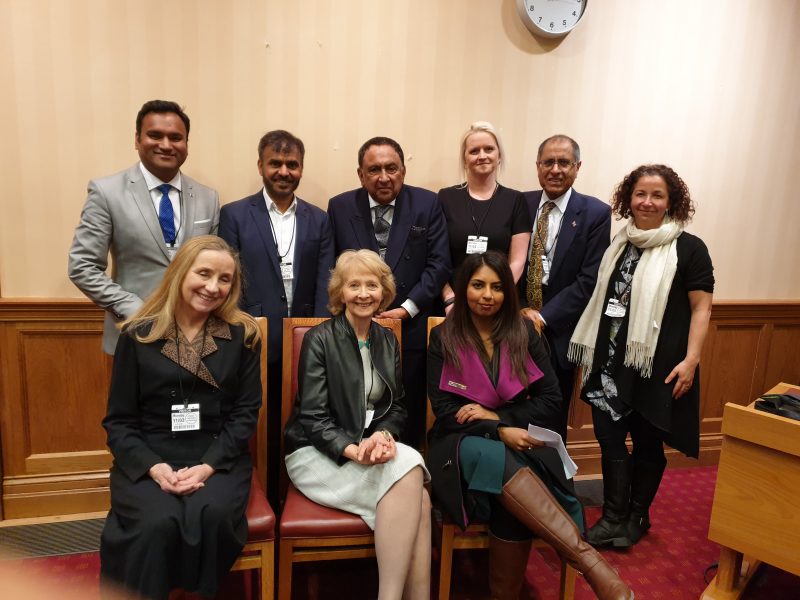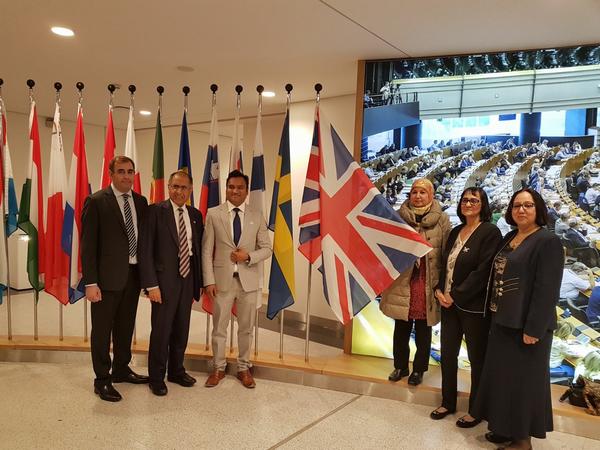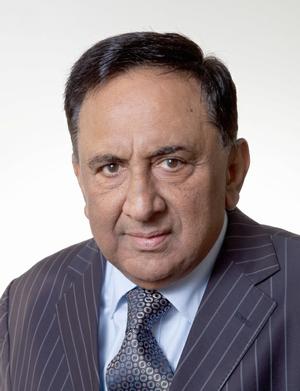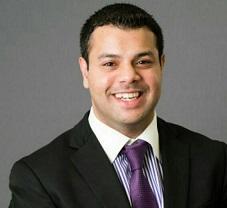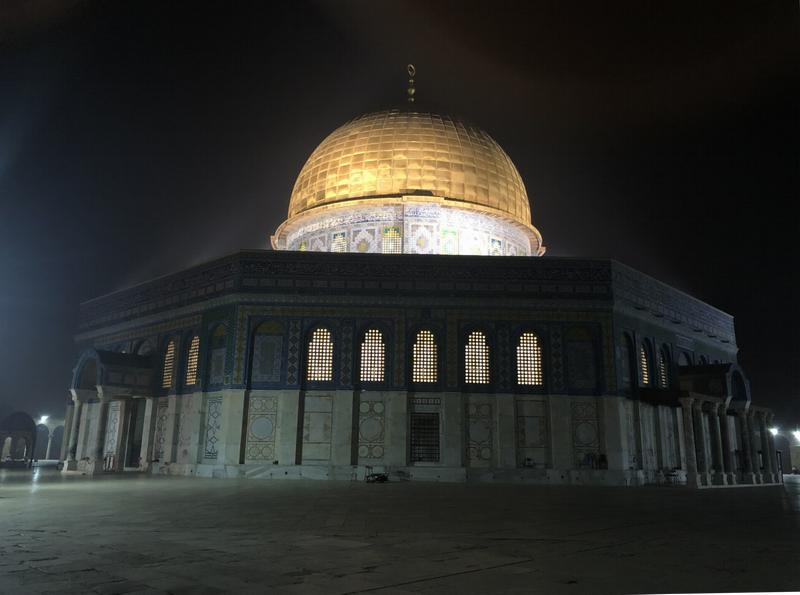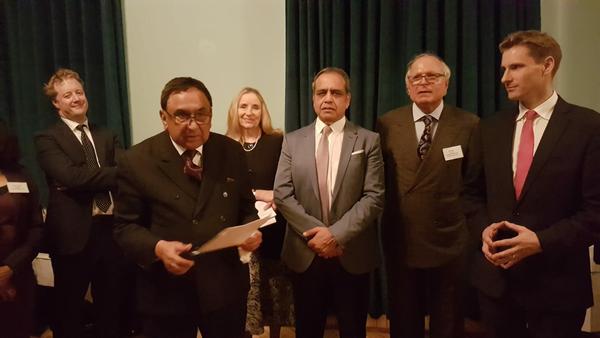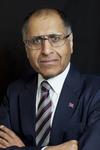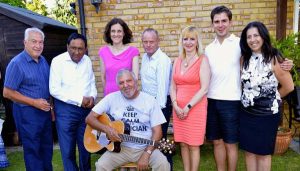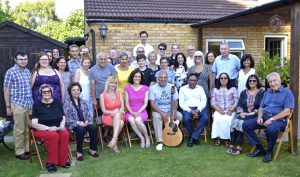Since the 1940s, Britain has changed from being a society
that was primarily mono-ethnic and mono-religious into one of the most diverse
countries in western Europe.
Britain today is a country which values citizens of all
kinds of backgrounds, and a country where ethnic and religious minorities are
increasingly represented at the highest levels in society. At the same time,
bigotry against minorities lingers on, albeit generally diminishing over time.
Accordingly, we are very pleased to report that on 20
December 2018 CMF President Lord Sheikh initiated a debate in the House of
Lords on the subject of anti-Muslim bigotry, usually called Islamophobia.
In accordance with House of Lords conventions, the precise
motion for debate was: “To move that this House takes note of the impact of
Islamophobia in the United Kingdom.”
The full debate can be read on the Hansard website at this link.
We are also happy to reproduce Lord Sheikh’s opening speech
in the debate below as copied from the Hansard website.
Lord Sheikh’s speech
My Lords, I am very glad that we are having this timely
discussion on Islamophobia today. I am also very pleased that recently there
was a debate in your Lordships’ House relating to anti-Semitism. I am totally
against anti-Semitism and feel that we should all get together and combat it in
every way we can. Unfortunately, xenophobia has to some extent crept into
different walks of life in this country and certain people behave very badly
towards minorities. Whether it is deliberate or based on misunderstandings, we
must all make an effort to combat this trend.
I am proud to live in a country where there are numerous
communities, and all races and religions are tolerated and in fact accepted.
Xenophobic attacks are increasing in regularity, and some people feel it is
fair game to engage in nastiness towards people who are different from them. I
believe there are more similarities than differences between people, and I am
very keen on promoting harmony between all communities. I might add that I am a
patron of Muslim and non-Muslim organisations that work towards achieving that
goal. That is the reason why I have tabled this debate today.
Furthermore, I have submitted an application to the House of
Lords Liaison Committee asking for a special inquiry to be undertaken on the
subject of Islamophobia. I hope that my application is successful, as
Islamophobia needs an in-depth study. A poll by ComRes in October found that
58% of people agreed with the statement:
“Islamophobia is a real problem in today’s society”.
It is crucial that we combat all forms of Islamophobia, from
subtle and institutional Islamophobia to discrimination and hate crime.
Discrimination in the workplace creates economic insecurity.
Muslim women, for instance, are 85% less likely to be offered a job if they
wear a veil. Muslim women face further prejudice, which was seen in August
where women wearing the burqa or niqab were compared to letterboxes and bank
robbers by a prominent politician. I spoke against those unsavoury remarks, but
unfortunately I was subjected to hate mail and harassment. We parliamentarians
should not create divisions by using inflammatory language. Instead we should
encourage the discussion of contentious topics in a considered and inoffensive
way. Does my noble friend the Minister agree? Furthermore, does he agree that
discriminatory remarks should not be used as a platform to gain political
advantage?
Unfortunately, I feel that elements of Islamophobia have
crept into the political parties. I have written and spoken about this issue,
and have gone public regarding the problem. I feel that political parties must
hold an inquiry to establish if there is such an issue and the extent of the
problem. The parties can then look into any remedial action that needs to be
taken. Does the Minister have any view regarding that?
The Home Office recently published figures that reveal that
52% of reported hate crime victims overall were Muslim. In fact, last month I
hosted an event for Tell MAMA due to the increase in hate-crimes. Hate crimes
include physical assault, verbal abuse and incitement to hatred. Between
January and June 2018, Tell MAMA recorded 608 reports that were verified as
being anti-Muslim or Islamophobic in nature. Two-thirds of those verified
incidents occurred on the streets, with the majority being towards Muslim
women, with one-third being online. The level of hate crime is of great concern
to me, and these figures are just the tip of the iceberg, as many incidents go
unreported. The actual numbers are much higher and on the increase.
It has also been noted that Islamophobia is an issue for
people of other religions and ethnicities. For example, Sikhs have been
subjected to hate crimes on the basis that they were perceived to be Muslims.
This is totally wrong and we must get together to combat hate crime.
Does the Minister feel that the police are doing enough to
combat hate crime and can anything else be done? Can the police be provided
with extra resources to deal with the problem? Institutional Islamophobia also
has a great impact on the lives of British Muslims. For instance, I believe
that the media must seek to become more balanced in its coverage, basing
reporting around facts rather than predetermined narratives.
I strongly believe in upholding freedom of speech and
freedom of the press, but these must be exercised with a great deal of care and
responsibility. The news media has become increasingly fixated by
attention-grabbing, often outrageous headlines at the expense of accurate
reporting. There is an association of Islam with crime and terror, which serves
only to spread and normalise Islamophobia. Crimes are committed by people of
all religions and races.
We must remember and respect the positive aspects of British
Muslims in this country. There are more than 3 million Muslims in the United
Kingdom who have come here from different parts of the world. Muslims have done
well in every walk of life and contribute significantly to the advancement and
well-being of the country.
I add that Muslim charities undertake good work in various
parts of the world and provide aid to Muslims as well as non-Muslims. Muslims
provide support to people of all races, colour and religion all over the world.
In July, I referred in your Lordships’ House to the fact that British Muslims
gave more than £100 million to charity during the month of Ramadan last year.
This figure equates to £38 a second. In his reply, my noble friend Lord Bates
referred to the generosity of British Muslims and queried why there was an
absence of media coverage of such charitable acts. I am most grateful to him,
as he made a valid point.
Furthermore, I recently hosted an event to discuss the
contribution of Muslims to the First World War, and spoke in your Lordships’
House on the matter. That significant role is not widely acknowledged and has
been historically undervalued. In fact, at least 2.5 million Muslim soldiers
and labourers from all over the world fought in the allied forces with dignity
and honour. In this respect, I have written a letter to the Minister asking
whether the Government would consider putting up a memorial to them. Has he had
time to consider my request?
The contribution of Muslims to society must be appreciated,
as it sets out the philosophy of Muslims and of Islam itself. Having said that,
I realise that Muslims are going through a critical phase and that there are
problems associated with some sections of the community. A tiny minority of
people practise and promote ideas which are totally un-Islamic. They have
misunderstood our glorious religion, and what they do and have done is not in
accordance with Islamic principles. It is wrong to condemn the entire community
for the actions of a misguided minority. I add that terrorism radicalisation
needs a holistic approach and should involve contributions from many, including
local authorities, the police, schools, prisons and members of the Muslim
community itself. I emphasise that the Muslim community has an important role
in combating radicalisation, but the community needs to be fully consulted.
Does the Minister agree with the point I am making?
Sometimes, problems arise because of a misunder- standing of
Islamic principles, so we should all work together to alleviate these
misunderstandings. However, an issue that has to some extent impacted dialogue
between Muslims and non-Muslims is the rise of populism and the existence of
extreme right-wing groups, some of which have promoted negative perceptions of
Muslims. The rise of populism in some parts of Europe also worries me. Earlier
this year, a “Punish a Muslim Day” letter threatened violence against Muslim
MPs, mosques and ordinary Muslims, and I am pleased that this was condemned by
right-thinking people. Muslims can be seen as un-British by extreme far-right
groups, yet in 2016, it was established that 93% of British Muslims felt that
they belonged to Britain.
It is true that the United Kingdom has fared better than
other countries in terms of resilience against far-right groups, which has
lessened their impact. In fact, we can celebrate that we have now had Muslim
Cabinet members, a Muslim is mayor of our capital city, and we hold positions
both in national and local politics. However, we cannot forget the impact of
Islamophobia in this country. Indeed, 70% of British Muslims in 2018 reported
that they had faced religious-based discrimination and prejudice. I am sure
that your Lordships are aware of the recent incident of a Muslim refugee boy
being physically abused and bullied at school. I add that the British people
abhorred this abuse and raised a fund for the family. This reaction by the
people must be appreciated.
It is imperative that we create a definition of Islamophobia
to make a meaningful change. The APPG on British Muslims recently launched a
definition of Islamophobia, drawing inspiration from the IHRA definition of
anti-Semitism. This definition reads:
“Islamophobia is rooted in racism and is a type of racism
that targets expressions of Muslimness or perceived Muslimness”.
I believe the definition is clear and lucid. It was
developed over six months, with input from a wide range of sources, academics,
parliamentarians, community- based organisations, and government-supported and
funded NGOs. It has also received a great deal of support across the community.
In fact, it has been supported by over 750 British Muslim organisations, 80
academics from different background and over 60 cross-party parliamentarians.
Will the Minister consider the acceptance of this definition and schedule a
meeting where we can discuss the way forward?
Finally, I thank all noble Lords in advance for taking part
in this important and topical debate.
